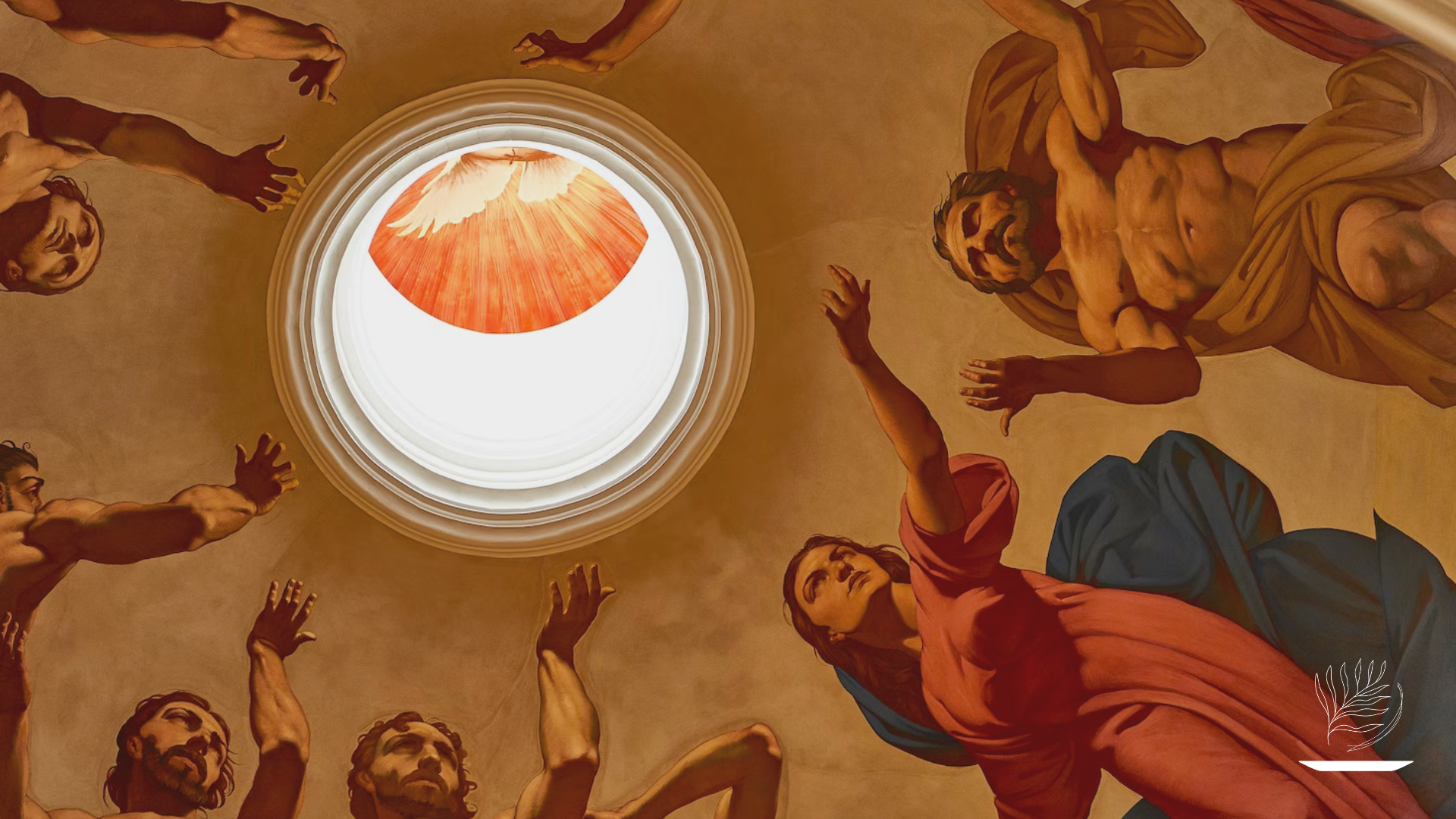Love in the Dust
Feb 25, 2021 | By Sam Laurent, Campus Minister for The Episcopal Center at Duke. This piece is part of syndicated series in collaboration with Duke Crux for Lent 2021. You can read the original piece here.
Pictured: statues in the dust.
If you’re depressed, Lent doesn’t look particularly bleak. Popularly rendered as a season of austerity and asceticism, Lent evokes overtones of unworthiness and deprivation in wider culture. On behalf of depressives everywhere, I’d like to welcome everyone else to the party. I have depression, and I love Lent. But not because it helps me blend in. The framing of Lent as communal masochism has been tried and found wanting. I have found, as a Christian, that systematically making other people feel bad because I feel bad is not a winning missional strategy, nor is it good pastoral practice. Lent lightens the load.
The first time my depression was named for me, the simple act of naming drew a lot of things into clearer focus. Mind you, all I had done about it was to schedule an appointment with a therapist, who said, “Well obviously, you’re dealing with depression.” But the naming of it helped me to see that I was not, in my essence, constrained to self-loathing and tired apathy. Once I named it, I could start the work of addressing my depression. Therapy. Exercise. Meds. Once someone named it for me, I knew what I was dealing with.
Perhaps more compellingly, once my depression was named, the possibility of feeling good came into view. It sat on the far horizon, but I could see it. I knew that people who have depression can come to feel better, if not every day, then on a lot of days. To be clear, I was still depressed. I had work to do to get around to feeling good. But I had an inkling now that it was possible. That is quite a first step.
The disciplines and practices of Lent all come with an underlying premise: we are all faltering mortals with all sorts of maladaptive behaviors in place to try to conceal our mortality from… well, we conceal it from ourselves. It’s a nasty, if brutishly simple fact, this mortality. Many of our most innovative industries have developed as attempts to thwart it. Good and well in many respects, but when, on Ash Wednesday, we are told that we are dust, to dust eventually returning, our condition is named for us.
Lent begins with an invitation to see ourselves as we truly are. We are mortal. We are, in the grand scheme of things, frail. And we are prone to falter. Receiving the news that we are dust gives us a tool to strip away all of the mechanisms we program into our life to divert our attention from that nagging truth. The simple speaking of the reality, “you are dust and to dust you shall return” pierces the armor of denial and distraction.
It is easy for mortals to resent God. Troubled by our own mortality and shortcomings, our encounter with God naturally leads us to covet God’s vastness and eternity. Kierkegaard defined this experience as despair. Nothing we do will give us the omnipotence and immortality we long for.
Not that we don’t try. Depression, it is often said, is anger turned inward. Pithy sayings don’t capture the breadth of things, but they stick around for a reason. We depressives have an innate knack for finding fault in ourselves, and for loathing ourselves. The notion that anyone would know us as we truly are and would love us anyway, is unthinkable. Every story of affirmation is spun into the cautionary tale of an impostor waiting to be exposed. The hiding in bed, the desire to feel numb or not to feel at all, and the withdrawal from interaction with others are all ways to avoid confirming what we in the grips of depression already know to be true: we are unlovable.
Others might try to appear vastly wealthy or powerful while maladaptively coping with their perceived shortcomings, much like the rewards Satan offered Jesus during his time in the wilderness. But I pull inward and try to work it all out with my brain. I try to think my way to wholeness. It becomes an obsessive task, burrowing into my psyche. An inward retreat can be as painful as public ridicule, if you do it just right. The depression cycle deepens then, for I know I cannot do the things I see others doing, because I am unlovable.
When I was a child, I thought Jesus’ forty days in the desert must have been particularly trying because He would certainly have gotten thirsty. As I grow older, I know that what frightens me is that Jesus was alone with Himself and nothing to distract Him. Excruciating.
“You are dust and to dust you shall return” interrupts my depressive cycle. Our emergence from the soil—the humus to our humanity—and our return to it happen regardless of any ideas we have or any behaviors we undertake. No matter what I think of myself, I am dust, and to dust I shall return.
This news comes as a tremendous relief. The simplicity of being dust affords little room for delusion. Like a novice swimmer flailing for the side of the pool, when I relax I realize that I can float. All I can do, in the end, will be to return to dust.
Most scandalously, it is in this life of dust that I am loved first. This human life is the one God breathed life into in the beginning and in every moment since. Like the knowledge that it is possible to feel better even though I have depression, this realization that I am loved does not fix anything in and of itself. But like a tiny spark in the darkness, that awareness creates a contrast I hadn’t been able to see before. When I strip everything else away, at the bottom of it all there is dust, and also somehow there is love.
The great difference between my depressive myopia and my dusty clarity is that the things I loathe most about myself become the reasons I can rest in God’s love. It is true that I have made many mistakes and have squandered potential and privilege. I have done things that hurt people I love. All of these things testify that I am not self-sufficient. I will not be able to make myself into the person I conjure in my head as the ideal person. That vision, as it turns out, is a pale shadow of God. It is the carrot dangling in front of me, never to be caught.
I can spend my days in rebellion against the basic parameters of my life, or I can remember that I am dust, and that of course I am not perfect or omnipotent or immortal. Just dust. Better still, I can remember that God knows that I am dust and God loves me anyway. It is a simple principle played out in unfolding complexity all around us. The creation is filled with arcing embers of life all trying to stay lit, often making a hash of it. God loves the whole thing, without reservation.
I cannot live into this theology simply by reading it or thinking it. I need to practice it. I need to make time in my life to practice being simply human, simply dust. I need to practice remembering that it is in the dust that I meet God, and that God’s love is not conditioned on achievement or productivity. It is conditioned simply on being a creature of God.
Depression is nothing to be thankful for. I would give it up in a hot minute if I could. But learning to live with it does come with insights, and this one has made this most penitent season into my favorite of the church year. People who believe they can be perfect, or who think they have earned God’s love, probably don’t feel like they need Easter. Easter doesn’t make sense in that context. Easter makes sense if we realize that we really need it. The internal logic of depression, which dictates that I cannot be loved as I am, yields a less severe verdict under Lenten scrutiny: I need love.
And then comes Easter.
I have never had trouble knowing that I cannot be perfect. That brand of humility (another dirt word) is a natural depressive talent. But I do need help remembering that God never expected that I would be perfect. All I really have to be is what I already am. Dust. And then I become ready to welcome God into my humble little life. There is dust, and there is love.




February 24, 2023 | Justin Ferrugia (TD ‘24)
Lent, per its origin, is a time of solitude and fasting. It is meant to mirror Christ’s solitary journey for forty days and forty nights after his baptism. Many Christian traditions including the Catholic Church still require that Ash Wednesday and Good Friday be days of fasting for adults, and many choose to devotionally fast more frequently during Lent and throughout the year. However, in our modern culture, it seems fasting has either become the newest trick to lose weight, or written off as a medieval practice of corporal mortification for the overzealous.